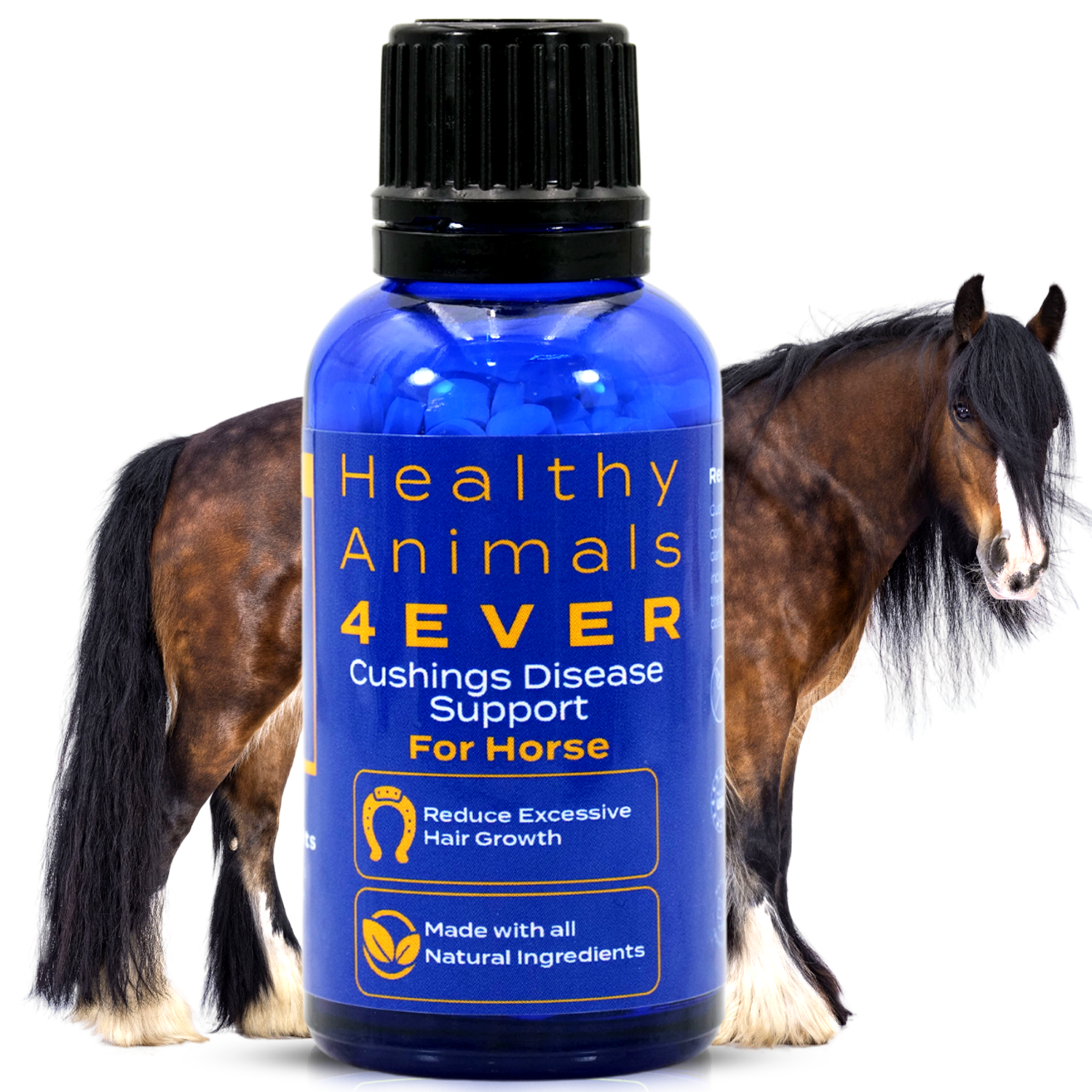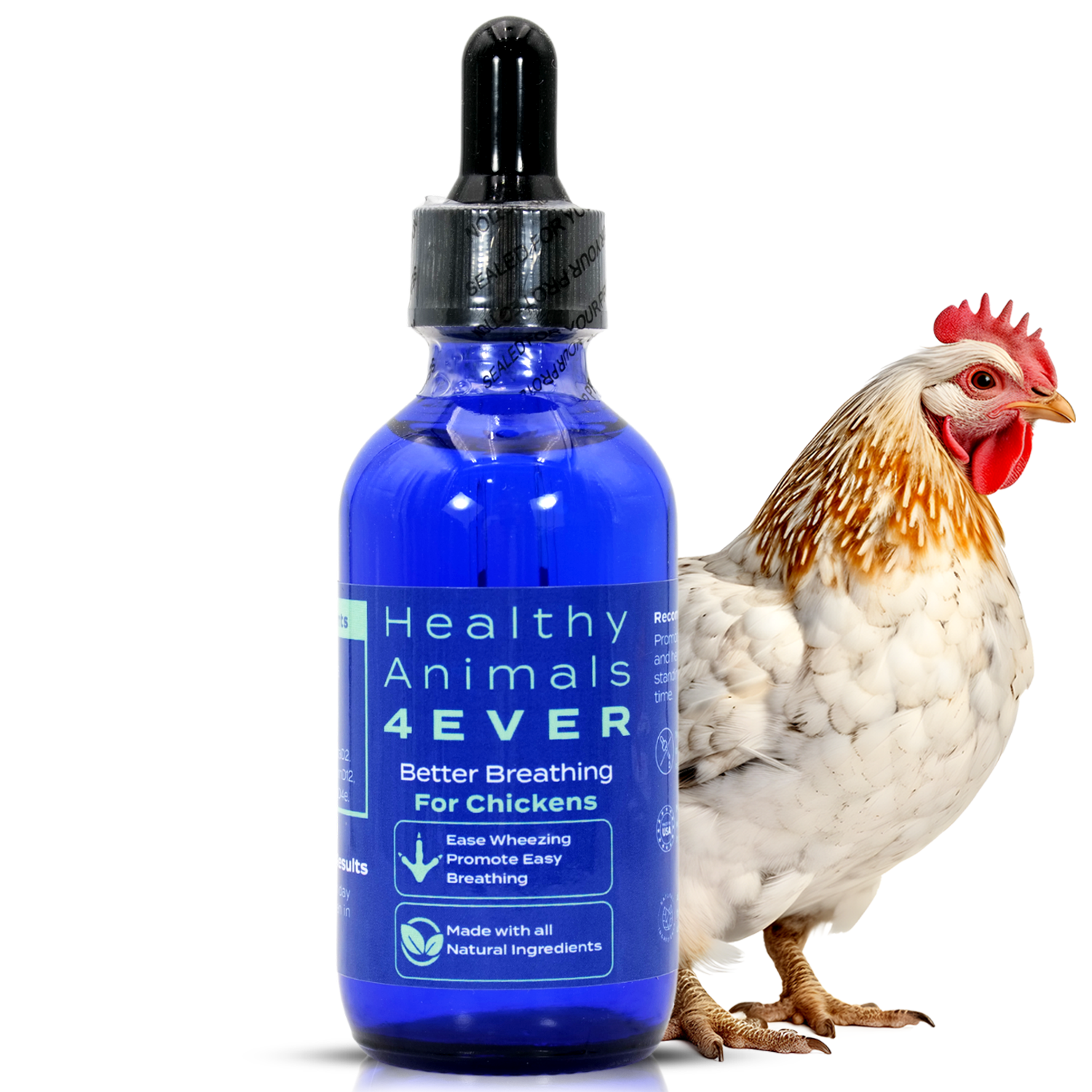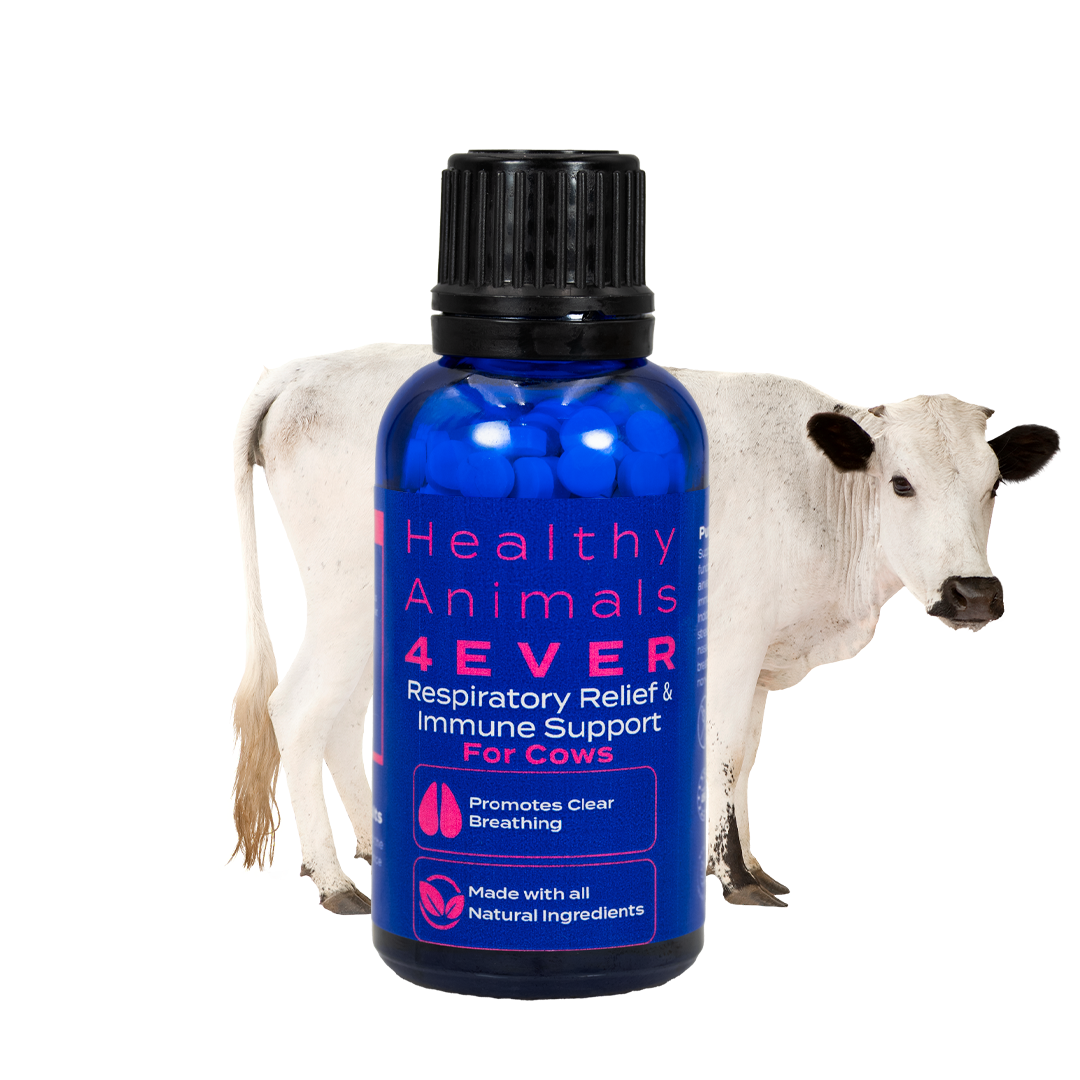Ultimate Guide to Fixing Bad Breath in Pets: Causes, Prevention, and Natural Treatments
Ever been greeted by your pet with a less-than-pleasant whiff of bad breath? We've all been there. While our cats and dogs can be our best companions, their breath sometimes leaves much to be desired.
Bad breath in pets, or halitosis, isn't just a stinky problem – it can also signal underlying health issues. But don't worry; you can handle this issue with simple steps.
This blog will explore the causes of bad breath, ways to prevent it, and some natural treatments, including homeopathy.
Better Breath is a natural bad breath remedy for all dogs. Helps with bad breath issues. Promotes mouth & fluid balance and comfort. It may help reduce inflammation. All-natural formula. Easy to use.
-
Causes of Bad Breath in Pets
Bad breath in pets, also known as halitosis, can be caused by various factors. Understanding these causes can help pet owners address the issue effectively. Here are the most common reasons why pets might develop bad breath:
Poor Oral Hygiene
Poor oral hygiene is one of the most common causes of bad breath in pets. Like humans, pets need regular dental care to prevent plaque and tartar buildup. If not cleaned regularly, bacteria can accumulate in your pet's mouth, leading to bad breath and severe dental problems.
Dental Diseases
Several dental diseases can cause bad breath in pets:
- Periodontal Disease: This is an infection of the structures around the teeth, including the gums, periodontal ligament, and alveolar bone. It often starts with plaque buildup and can lead to tooth loss if not treated.
- Gingivitis: Inflammation of the gums caused by plaque buildup can lead to bad breath. It's a common condition that can progress to more serious dental issues if ignored.
Diet and Eating Habits
What your pet eats can significantly impact their breath. Certain foods, especially those high in protein, can cause bad breath. Additionally, pets that scavenge or eat spoiled food and garbage will likely develop halitosis.
Systemic Health Issues
Bad breath can sometimes indicate a more serious underlying health issue:
- Kidney Disease: A pet with kidney disease may have breath that smells like ammonia due to the buildup of waste products in the blood.
- Diabetes: Diabetic pets, particularly those with uncontrolled diabetes, might have a sweet or fruity odor on their breath due to high levels of ketones.

Urinary Support for Bladder and Kidney provides natural renal system support for dogs. Promotes healthy bladder and kidney functions. Helps ease issues associated with a UTI (Urinary Tract Infection). All-natural formula. Safe and easy to use.
Foreign Objects in the Mouth
Sometimes, pets can get foreign objects stuck in their mouths, such as bones, sticks, or toys. These objects can cause infections, sores, or injuries, leading to bad breath. It's essential to regularly check your pet's mouth for any unusual items.
Oral Infections and Ulcers
Infections in the mouth, such as abscesses or ulcers, can cause bad breath. These conditions might be painful for your pet and often require veterinary treatment. Regular checks and good dental hygiene can help prevent these issues.

-
Prevention of Bad Breath in Pets
Preventing bad breath in pets involves a combination of good oral hygiene practices, proper diet, and regular veterinary care. Here are some practical ways to keep your pet's breath fresh and their mouth healthy:
Regular Dental Check-Ups
Scheduling regular dental check-ups with your veterinarian is crucial. During these visits, the vet can:
- Examine your pet’s teeth and gums for signs of disease.
- Perform professional cleanings to remove plaque and tartar buildup.
- Provide advice on maintaining good oral hygiene at home.
Annual or bi-annual check-ups can help catch dental issues early and keep your pet’s mouth healthy.
Brushing Your Pet’s Teeth
Brushing your pet’s teeth is one of the best ways to prevent bad breath and dental disease. Here’s how you can do it:
- Use a Pet Toothbrush and Toothpaste: Human toothpaste can harm pets, so use products specifically designed for them.
- Start Slowly: Gradually introduce your pet to the toothbrush and toothpaste. Start by letting them lick the toothpaste from your finger.
- Be Gentle: Brush in small, circular motions, focusing on the gum line where plaque accumulates.
Aim to brush your pet’s teeth daily or at least a few times a week.
Providing Dental Chews and Toys
Dental chews and toys are designed to help clean your pet’s teeth and freshen their breath. They work by:
- Scraping Away Plaque and Tartar: Chewing on these products helps reduce plaque buildup.
- Stimulating Saliva Production: Chewing increases saliva flow, naturally cleansing the mouth.
Choose products that are appropriate for your pet’s size and chewing habits.
Healthy Diet and Proper Nutrition
A balanced diet is essential for your pet's overall and dental health. Here are some dietary tips:
- High-Quality Pet Food: Feed your pet a high-quality diet that meets their nutritional needs.
- Avoid Table Scraps: Human food can contribute to bad breath and dental issues. Stick to pet-safe foods and treats.
- Incorporate Dental-Friendly Foods: Some pet foods are formulated to support dental health. Look for these options if your vet recommends them.
All Digestive is a natural digestive support for cats. Helps with stomach upset, diarrhea, and gastritis. It aids in restoring digestive balance and your pet's comfort. All-natural formula. Easy to use.
Hydration and Clean Water
Keeping your pet hydrated is essential for their dental health. Ensure your pet has access to fresh, clean water at all times. Hydration helps:
- Rinse Away Food Particles and Bacteria: Water helps flush out food debris and bacteria from your pet’s mouth.
- Maintain Saliva Production: Adequate water intake supports saliva production, naturally cleaning the mouth.
Monitoring and Managing Health Conditions
Certain health conditions, like diabetes and kidney disease, can cause bad breath. Effectively managing these conditions can help prevent bad breath. If your pet has a chronic health issue, work closely with your vet to keep it under control.

-
Natural Treatments for Bad Breath
If your pet has bad breath, several natural treatments can help. These treatments are gentle and can often be done at home. Here are some effective natural methods to freshen your pet's breath:
Dietary Adjustments
What your pet eats can significantly affect their breath. Making some changes to their diet can help reduce bad breath.
- Natural Foods and Herbs: Incorporate fresh, natural foods into your pet’s diet. For example, adding a small amount of chopped parsley to their food can help freshen their breath. Parsley contains chlorophyll, which has deodorizing properties.
- Probiotics and Prebiotics: These supplements support healthy gut bacteria, which can improve digestion and reduce bad breath. You can find probiotics specifically formulated for pets at most pet stores.
Home Remedies
Simple home remedies can be very effective in reducing bad breath. Here are a few to consider:
- Coconut Oil: Coconut oil has antibacterial properties that can help fight the bacteria causing bad breath. Add a small amount (about a teaspoon for dogs and less for cats) to your pet's food, or let them lick it off a spoon.
- Apple Cider Vinegar: Adding a teaspoon of apple cider vinegar to your pet’s water bowl can help reduce bacteria in their mouth. Make sure to use organic, unfiltered apple cider vinegar.
- Parsley and Mint: Both parsley and mint have natural deodorizing properties. Finely chop a small amount and add it to your pet’s food.
Herbal Remedies
Certain herbs can help improve your pet’s breath and overall oral health.
- Chamomile: Chamomile has anti-inflammatory and antibacterial properties. You can make chamomile tea, let it cool, and use it to rinse your pet’s mouth. Alternatively, you can add a small amount of chamomile tea to their drinking water.
- Goldenseal: Goldenseal is another herb with antibacterial properties. You can find goldenseal powder at health food stores. Mix a small amount with water to create a mouth rinse for your pet.
Hydration and Fresh Water
Ensuring your pet drinks plenty of water is essential for maintaining fresh breath. Hydration helps:
- Rinse Away Food Particles and Bacteria: Water helps flush out food particles and bacteria that cause bad breath.
- Maintain Saliva Production: Adequate water intake supports saliva production, naturally cleaning the mouth.
Make sure your pet always has access to fresh, clean water. Change their water regularly and keep their bowl clean.
Using Natural Dental Products
Many natural dental products help keep your pet's mouth clean and fresh. Look for:
- Natural Toothpaste: Use toothpaste made specifically for pets, with natural ingredients like baking soda and aloe vera.
- Dental Chews and Treats: Choose dental chews and treats made with natural ingredients and designed to help clean your pet’s teeth.
Incorporating these natural treatments into your pet care routine can help keep their breath fresh and their mouth healthy.

-
Homeopathy for Bad Breath in Pets
Homeopathy is a natural and holistic approach to treating various health issues, including pet bad breath. It involves using highly diluted substances to stimulate the body's natural healing processes.
Here are some common homeopathic remedies for bad breath in pets:
- Mercurius Solubilis: This remedy is often used for pets with foul-smelling breath and excessive drooling. It is beneficial if the pet has inflamed, bleeding gums and a coated tongue.
- Nux Vomica: Nux Vomica is helpful for pets with bad breath caused by digestive issues. It can be used if your pet has a history of overeating, eating spoiled food, or has a sensitive stomach.
- Arsenicum Album: This remedy is effective for pets with bad breath due to stomach upsets or poisoning. It is beneficial if your pet is anxious, restless, and has a burning sensation in the stomach.
- Carbo Vegetabilis: Carbo Vegetabilis can be used for pets with bad breath due to poor digestion and flatulence. It is helpful if your pet is weak, lethargic, and has a bloated abdomen.
Better Breath is a natural bad breath remedy for all cats. Helps with bad breath issues. Promotes mouth & fluid balance and comfort. It may help reduce inflammation. All-natural formula. Easy to use.
-
When to See a Veterinarian
While there are many ways to manage and prevent bad breath in pets at home, there are times when professional veterinary care is necessary. Recognizing when to see a veterinarian can ensure your pet's health issues are addressed promptly and effectively.
Warning Signs of Serious Health Issues
Bad breath can sometimes indicate underlying health problems that require veterinary attention. Here are some warning signs to watch for:
- Persistent Bad Breath: If your pet’s bad breath does not improve with home care, it could indicate a more serious issue.
- Red, Swollen, or Bleeding Gums: These signs often point to gum disease or infection, which needs professional treatment.
- Loose or Missing Teeth: Dental disease can cause teeth to become loose or fall out, requiring a vet's intervention.
- Difficulty Eating or Drooling: If your pet has trouble eating or is drooling excessively, it might have dental pain or oral injury.
- Visible Growths or Lumps in the Mouth: Any unusual growths or lumps should be examined by a veterinarian to rule out tumors or other severe conditions.
- Pawing at the Mouth or Face: This behavior can indicate discomfort or pain in the mouth, which should be checked by a vet.
- Changes in Behavior: Lethargy, irritability, or changes in appetite and drinking habits can signal underlying health issues that might be linked to dental problems.

The Bottom Line
By knowing the causes, practicing good oral hygiene, and exploring natural treatments, you can ensure your pet's mouth stays healthy and their breath stays fresh.
Remember, while home remedies and preventive care are fantastic, don't hesitate to consult your vet if your pet’s bad breath persists or if you notice any worrying symptoms.
Keeping your pet's dental health in check will improve their breath and overall well-being.











